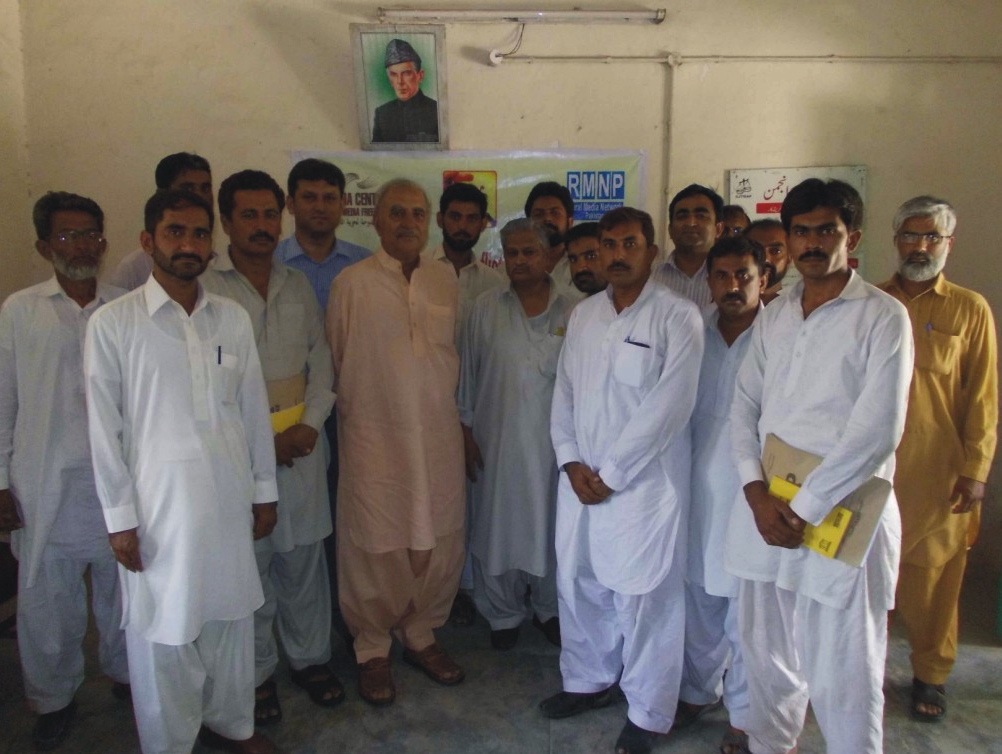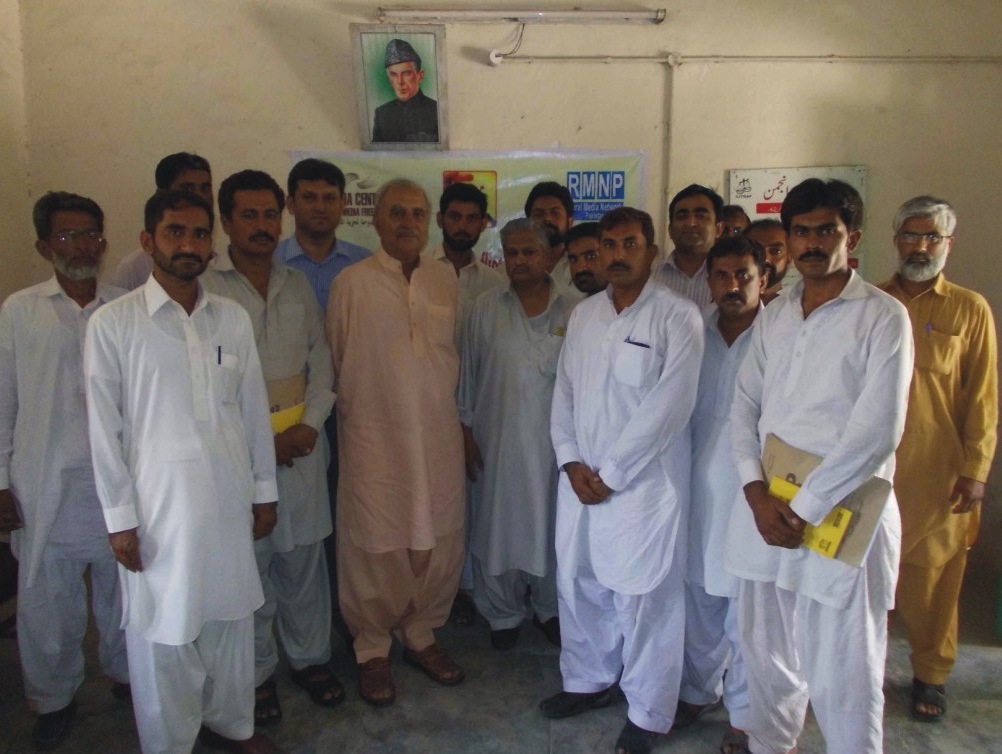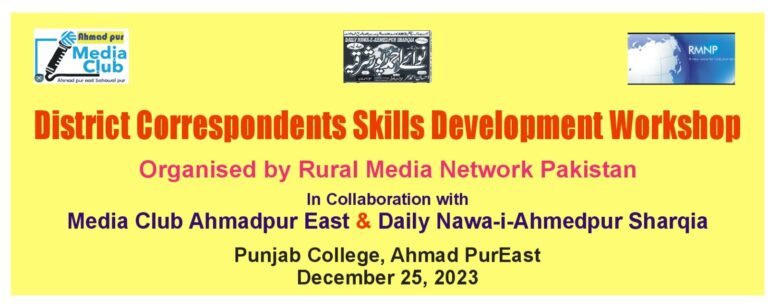DCMF concludes safety workshop in Pakistan

DCMF and partner organisation Rural Media Network Pakistan held a workshop in Mubarakpur, a town in the district of Bahawalpur, 150 km away from the Indian border.
DCMF and partner organisation Rural Media Network Pakistan held a workshop in Mubarakpur, a town in the district of Bahawalpur, 150 km away from the Indian border.
The workshop, attended by 15 journalists working in Pakistan’s frontier regions, focused on showing students safety measures and journalism practise in conflict areas.
Lectures were given by Pakistani professionals , Nasir Hameed, Nauman Masood Khan, Ilyaz Ayaz and Ehsan Ahmed Sehar. Topics covered included reporting on sensitive stories, building contacts and relations with armed groups, and coverage of violent mobs.
Attendees were also taught how to report and handle situations after bomb blast and learned about precautionary measures when reporting on violent mob. From covering sensitive stories, to gathering contacts and building relations with armed groups, journalists left the classroom after the first day with more confidence to work on the field.
On the second day, participants were given an insight on the different types of explosive materials and how to identify them and a course on first aid techniques.
Lecturers referred to national and international standards and advice established by the Pakistan Federal Union of Journalists (PFUJ), the International Federation of Journalists (IFJ) and Reporters Without Borders guide in Urdu when debating on the role of the media in conflicts and the duties and responsibilities of journalists while reporting sensitive issues.

Participants and lecturers of the Safety for Journalists Training workshop
Threats and interferences
Borders have proved to be dangerous areas for journalists. In Brazil, three media professionals based in the country’s south borders have died since the beginning of the year.
Following the workshop in Pakistan, although participants have said they did not notice interferences from intelligent agencies in the workshop, they pointed at other hindrances and threats coming from feudal, militants of religious parties, including political leaders and police officials.
One of the participants, Mazhar Rasheed, said he was threatened on the phone by the “local feudal” and despite reporting to the police, he believed no sufficient action was taken. Rao Farooq who also followed the course, also felt insecure after being threatened by a religious group and complained the police has not cooperated.
Another journalist, Syed Ishrat Hussain, received threats from the local political figure after Hussain published a story against him.
Malik Ibrahem stated that a specific linguistic group “advised” him to be careful when reporting on stories.
Mubashir Hassan received life threats from drug trafficker and a local political activist.
Ejaz Missan was threatened by a religious activist and a local political figure while reporting on a sensitive issue.
Hostile Pakistan
Pakistan is listed as one of the most hostile environments for journalists, being also considered the world’s deadliest country for two years in a row (2010 and 2011) according to Reporters Without Borders press freedom index.
In his closing speech, President of Rural Media Network Pakistan Ehsan Ahmed Sehar stressed that Pakistan’s Freedom of Information Ordinance passed in 2002 must be amended to make sure the right of access to information of every individual and freedom of expression can be achieved.
Former federal Information Minister and new ambassador to the United States Sherry Rehman presented a bill before she left office pending approval at the National Assembly.
Rural Media Network Pakistan contributed to this report
Source: DCMF

